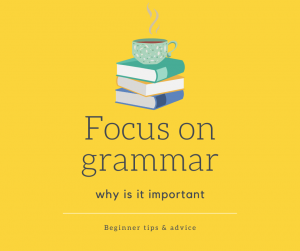
The Korean learning methodology that I’d recommend is to dive right into grammar after mastering the Korean alphabet (Hangul). Do not bother about expanding your vocabulary or improving your listening or speaking at this point, just focus on beginner grammar first. This is based off my experience of trial and error myself as a beginner, and this proved to be the most effective way to go about it.
But just cramming grammar is boring!
I totally feel you there. At one point I also had the wishful thinking that with minimal grammar learning, I would be able to start understanding some of the script of Korean dramas. However, without a basic foundation of grammar concepts, I did not even know how to break down a simple sentence.
This is one of the famous quote in my favourite drama:
나랑 사귈래?
First, unlike in English where each word is a standalone word, and you can check each individual word in the dictionary, there are a lot of conjugations in Korean. In this sentence the words are not 나랑 and 사귈래. Let us now try to break it down properly:
나 – I (informal)
랑 – and (informal)
사귀 – go out with (basic form 사귀다)
-ㄹ래 – sentence ending to indicate speakers intention / ask for the listener’s thoughts about it (informal)
So this sentence means ‘Will you go out with me?’
나, 랑, -ㄹ래 are the grammar points that you will cover as a beginner. Only after being familiar with these word conjugations, sentence endings, connecting words etc that you will be able to break down simple sentences.
Another reason why grammar is particularly important in learning Korean as a beginner is the transformation of Korean words. Take a very simple example: 크다 (Big) 크다is the dictionary form of the adjective. However, unlike in English, you don’t usually use that directly in a sentence. It first has to go through some transformations.
If you want to say something is big, the simplest way is to say 이거 커. (This is big.) Note that the dictionary form has dropped its 다, and added a 어 to form 커.
If you want to say this is a big house, you will say 큰 집. The adjective back here has a ㄴ added to it. Confusing, isn’t it?
Beginner grammar is like the skeleton of a sentence. The flesh is the great variety of vocabulary of nouns and verbs out there. One can even add decorations and accessories of adverb and adjectives. Without knowledge of the basic grammar, one would not be able to distinguish which part is the skeleton, flesh or accessories, not to mention understanding the meaning of the sentence.
While I was a beginner I also tried to decipher quotes from dramas and lyrics with a dictionary but it turned to be extremely exhausting, what I learnt was very fragmented and did not integrate well with my studies.
I just find focusing and drilling on the basic grammar first, get it over with and quickly moving on to more interesting materials much more effective than wasting time struggling with even simple sentences.
That’s the bad news but the good news is that there aren’t that many basic, commonly used grammar points. Depending how much time you put in to your studies, you can probably cover all the fundamental building blocks of the Korean language within 3 to 6 months quite comfortably. If you use a traditional textbook it may take longer because they tend to waste time on things irrelevant at this stage (like having a whole chapter on self introduction, then another chapter on common Korean names (?!) etc). Why I love Talktomeinkorean grammar lessons is that their lower level lessons focus purely on grammar. Each lesson is short and sweet but with sufficient examples and explanations for me to grasp the grammar concept quickly.
Hope you find these tips useful. Please leave a comment below on what you want to know about Korean language learning and sign up to receive more advice and tips 🙂
0 Comments